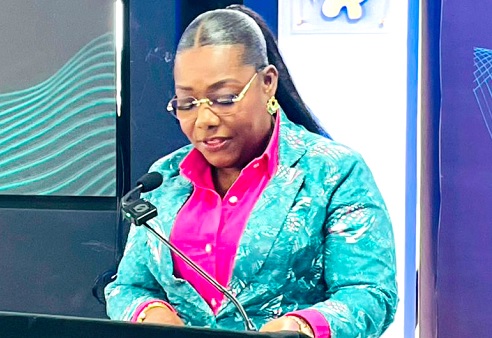
Collaborate to accelerate industrialisation - Nana Oye Bampoe to African governments
African governments and the private sector have been urged to deepen collaboration to strengthen value chains and accelerate the continent’s industrialisation drive.
Such collaborations will help Africa reduce its dependence on external aid, build resilience, and finance its own economic transformation.
The Deputy Chief of Staff, Nana Oye Bampoe Addo, made the call at the launch of the Africa Trade Summit 2026.
The summit, scheduled for January 28 to 30, 2026, will be held at the Kempinski Hotel Gold Coast City in Accra on the theme: “Financing Africa’s Industrialisation: Developing Value Chains, Beneficiation and Market Integration”.
It will also feature the Africa Trade Awards.
Economic strategies
Ms Bampoe Addo, launching the event, stated that the summit was taking place at a critical point in Africa’s economic journey where global conditions had shifted significantly, stressing that external aid was declining, credit conditions had tightened, and many nations were now adopting more inward-looking economic strategies.
“These developments mean Africa must also look within, consolidate its economic structures, and pursue growth pathways driven by productivity and value addition,” she said.
She emphasised that industrialisation had become essential for Africa’s economic survival and competitiveness.
“The continent must secure its own value chains and build the capacity needed to support long-term development,” she added, emphasising that sustainable economic progress depended on Africa’s ability to finance its own transformation and reduce reliance on external support.
Ms Bampoe Addo said the private sector remained central to the continent’s economic aspirations since most investment flowed from private enterprises, including SMEs, agribusinesses and manufacturing firms.
In Ghana, the Deputy Chief of Staff intimated that ongoing reforms under the National Democratic Congress (NDC) government were aimed at creating a stable environment for investment, expanding local production and strengthening value chains from the primary sector to industry and the market.
Collaboration
A distinguished Ghanaian businessman, entrepreneur and statesman, Sir Sam Jonah, underscored the need for stronger collaboration between governments and the private sector in driving national development.
“While governments set the stage for development, it is the private sector that performs the play through investment, initiative and innovation,” he said.
The Minister of Trade, Industry and Agribusiness, Elizabeth Ofosu-Adjare, said Africa was entering a new phase where industrialisation had become indispensable to economic transformation.
She said the Africa Trade Summit should be regarded as a major platform for aligning capital mobilisation, industrial priorities and policy reforms across the continent.
"Ghana is committed to contributing to this continental agenda, guided by the economic direction of President John Dramani Mahama, which is focused on productivity, competitiveness and job creation," she stated.
Ms Ofosu-Adjare highlighted the government’s 24-Hour Economy initiative as one of the key policies intended to boost national output, improve turnaround times in essential services and position Ghana as a reliable production hub within both regional and global value chains.
She further indicated that sustainable industrial growth depended on value addition and the expansion of value chains.
For decades, she said, many African countries had exported raw commodities only to import finished goods at higher prices.
Ghana, she noted, was taking deliberate steps to reverse this pattern.
“In the cocoa sector, we are increasing local processing capacity so that a significant proportion of our cocoa is converted into intermediate and finished products domestically,” Ms Ofosu-Adjare said.
